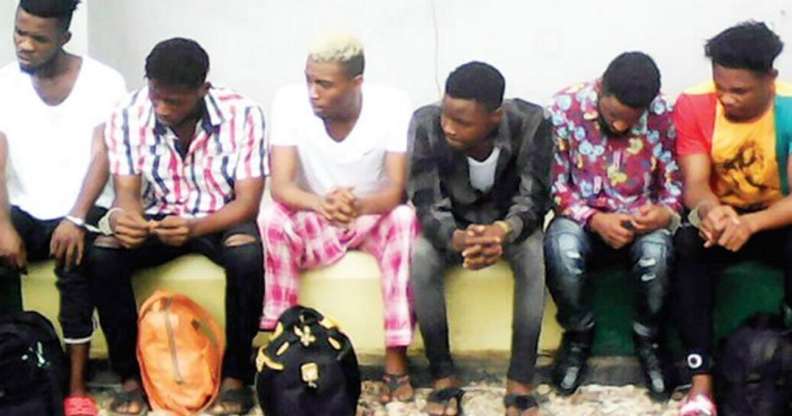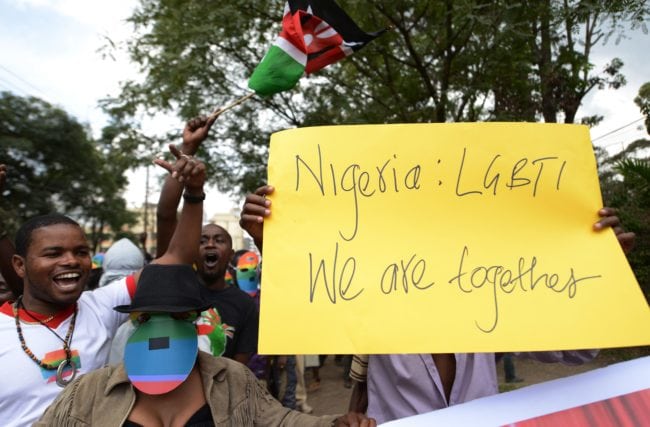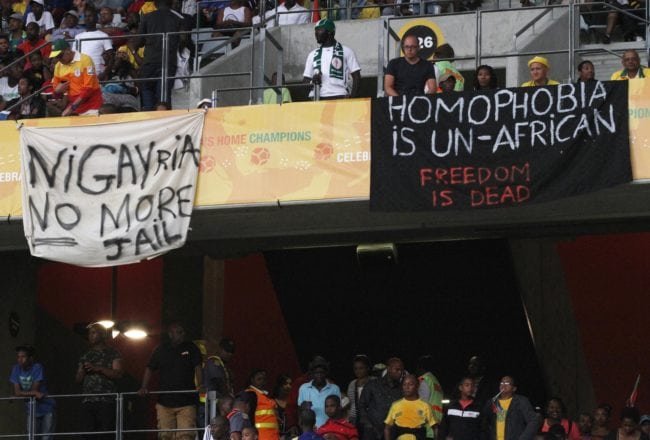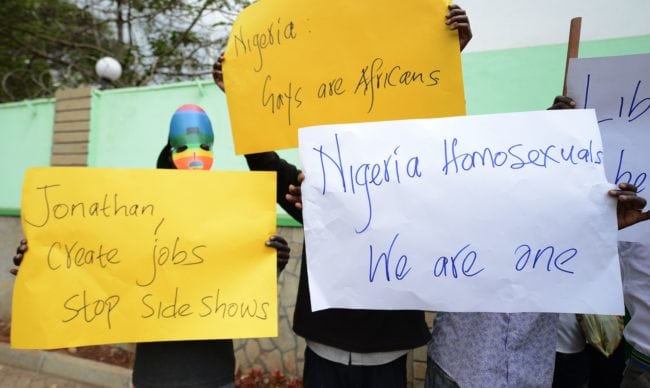Six men arrested in Nigeria for being gay

The men in Abia also denied being gay (abia state police)
Six men in Nigeria have been arrested and paraded in public because police suspect them of being gay.
In Nigeria, people convicted of having gay sex can spend up to 14 years in prison – apart from in 12 northern states which have Sharia law, where they are stoned to death.
Last year, 42 men were arrested at a hotel in Lagos state and charged with performing “homosexual acts.”

Gay sex is punishable by death or up to 14 years in prison in Nigeria (SIMON MAINA/AFP/Getty)
The latest arrests were made in Abia, where the men face a jail term rather than death.
The manager of the City Global Hotel phoned the police with allegations that the men had been seen kissing in the hotel bar, according to Nigerian news outlet Punch.
He then went to their room – which he said was meant for two people – and allegedly discovered six men kissing one another and getting intimate.

The men said they were there for a birthday party (AllOut)
The police report states that the men told them under interrogation that they were part of a gang who travelled to Abia from different states to have sex with each other.
But the men gave a different version of events, explaining that they had come for a birthday party hosted by one of them.
One of the arrested men said that they were all in the same room because they couldn’t get one for six people.
“I arrived at the hotel at about 6pm and I asked my friend to book for a room for me,” he said.
“The hotel management said we should pay 5,000 Naira (£11) for a room and we could afford it. So, we decided to manage that one room.

The men are set to face trial (Shaun Roy/Gallo Images/Getty)
“After drinking at the hotel bar, we went to the room to change our clothes,” he continued.
“It was at that time that we heard a knock on the door and when we opened the door, the manager started asking why we were six in the room.
“After explaining to him, he said they don’t allow more than three persons in a room and that was how he accused us of practising homosexuality in the room.”
The man denied that they had performed any sexual acts at the hotel, saying: “There was nothing like kissing or making love in the room and we are not gays.”
One of the arrested men backed up this account, saying: “I invited my friends for my birthday and I wanted to pay for two rooms but we couldn’t because the rooms were filled up.

Nigerian media outlets attacked Prime Minister Theresa May after she promoted LGBT+ rights in the Commonwealth (SIMON MAINA/AFP/Getty)
“That was why we were in one room,” he added.
The state’s Commissioner of Police, Anthony Ogbizi, has said the men will face a trial.
Earlier this year, Nigerian politicians hit out at Prime Minister Theresa May after the British leader promoted LGBT+ rights in the Commonwealth countries that still criminalise homosexuality.
During the Commonwealth Heads of Government Meeting (CHOGM) meeting in April, May spoke about the UK’s regret at imposing anti-gay laws in former colonies.
She noted that 36 of the 53 Commonwealth countries continue to criminalise homosexuality, saying: “I deeply regret the fact that such laws were introduced, and the legacy of discrimination, violence and even death that persists today.”

